Egypt's shaken Copts mark Good Friday after double bombing
- Published
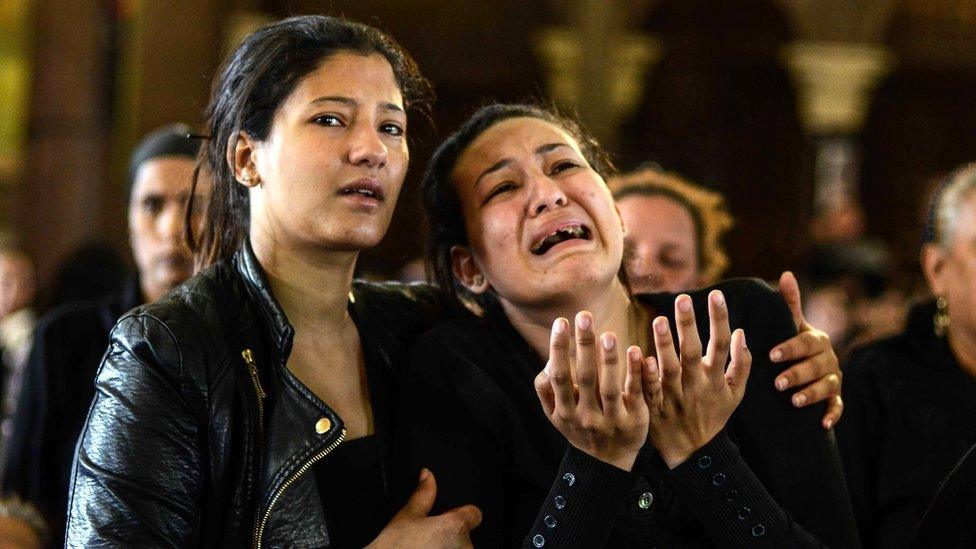
Funerals were held near Alexandria on Monday
The head of the Coptic Christian Church has led a Good Friday service in the cathedral in Cairo in the aftermath of last Sunday's deadly bomb attacks.
Pope Tawadros II had been in one of the two churches targeted on Palm Sunday when 45 people were killed in attacks claimed by so-called Islamic State.
Security has been tightened at churches across Egypt and Easter celebrations have been scaled back.
Both suicide bombers were Egyptians, the government said.
A three-month state of emergency was imposed following the bombings in Alexandria and the Nile Delta city of Tanta.
The attacks on Christians, who make up about 10% of Egypt's population, raised security fears ahead of a visit to Cairo by Pope Francis, the head of the Roman Catholic Church, scheduled for 28 and 29 April.
In a visit to Pope Tawadros, President Abdul Fattah al-Sisi vowed to hunt down those who had organised the bombings.
'A wave of persecution'
Good Friday is the day Christians commemorate the crucifixion of Jesus Christ.
"We don't fear" says a worshipper at the bombed St George's Church in Tanta
"With these incidents we are now living with Christ in his pain," Coptic Bishop Kirillos told AFP news agency.
"Given the current circumstances and our solidarity with the families of the dead, we are going to limit our celebrations to Easter Mass," the Church said in a statement.
There would be no decorations in churches and rooms normally reserved for the reception of worshippers wishing to exchange season's greetings would remain closed, an official at the Coptic patriarchate told AFP.
Another Coptic bishop, Macarius, told Reuters news agency earlier that the Church wanted greater guarantees of security.
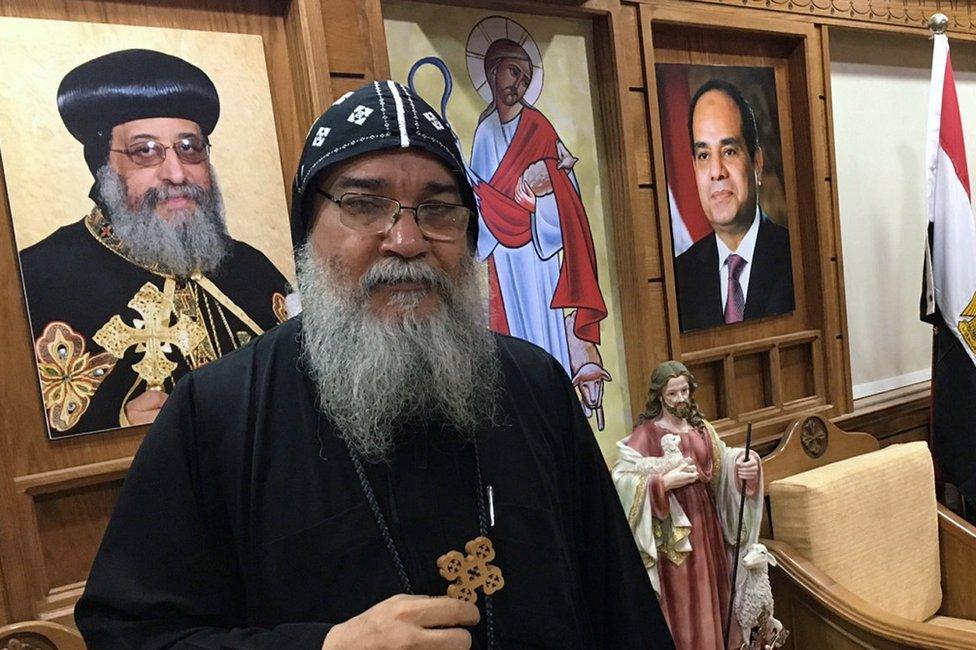
Bishop Macarius spoke of a "wave of persecution"
"We can consider ourselves in a wave of persecution but the Church has gone through a lot in 20 centuries," he said.
"There are waves of persecution. It reaches to the highest point like a pyramid and then it goes down again. We are at a very high point."
Victims of the attacks will be mourned at Masses on Saturday night.
'Homes burnt'
The bombers were both identified as coming from the southern province of Qena.
One used to work for a petroleum company and was linked to a cell that carried out the attack on a Cairo church last December, in which 25 people were killed.
He blew himself up after being stopped by police at the gates of St Mark's Cathedral in Alexandria, where Pope Tawadros was leading a Palm Sunday service.
The other bomber was identified as a member of a "terrorist" cell.
Meanwhile, in the province of Minya, Muslims fought with Christians who had tried praying in an abandoned home in a village on Thursday, AFP reports.
The Muslims then set fire to four nearby homes, police officials were quoted as saying.
- Published11 April 2017
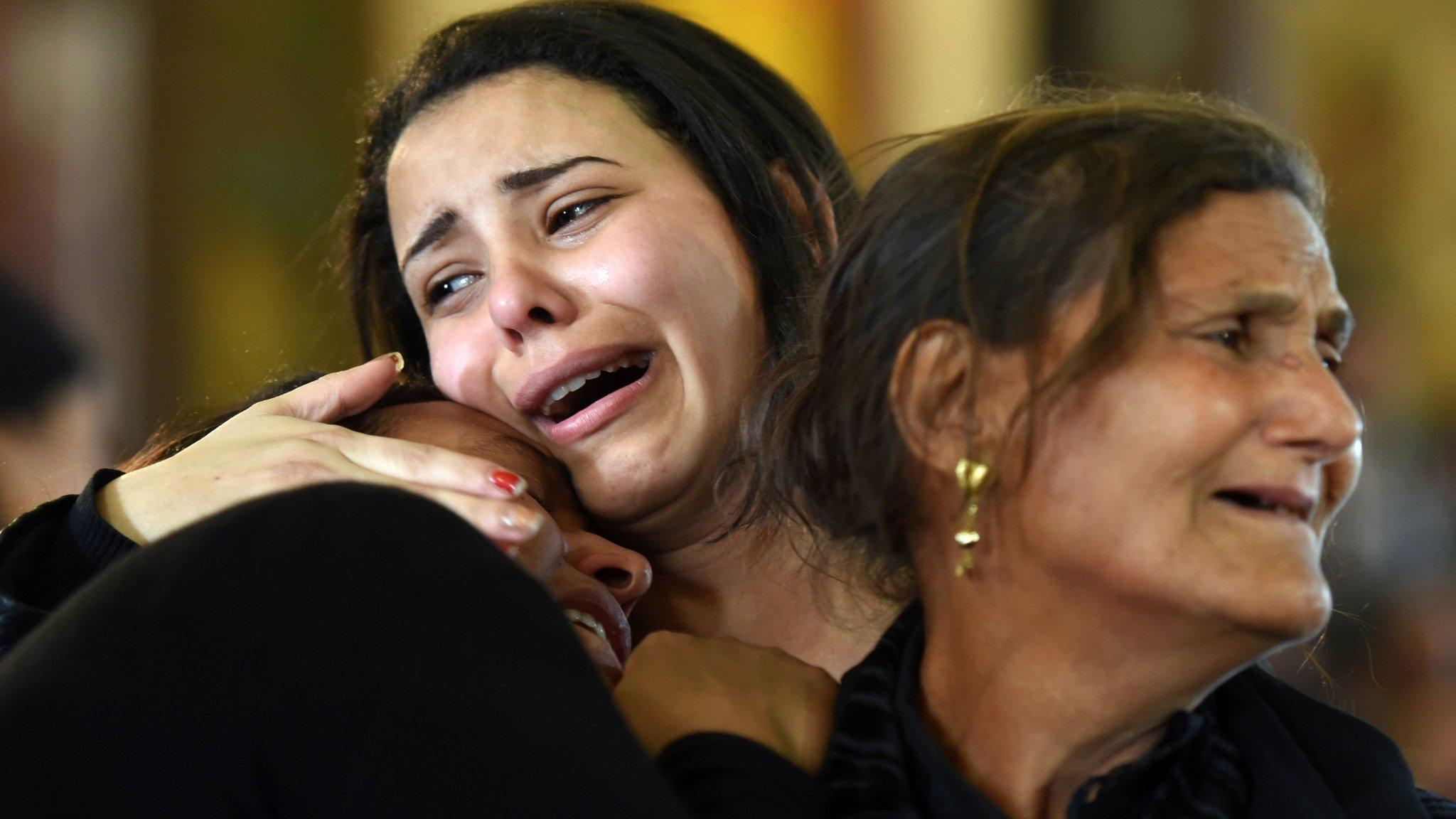
- Published10 April 2017
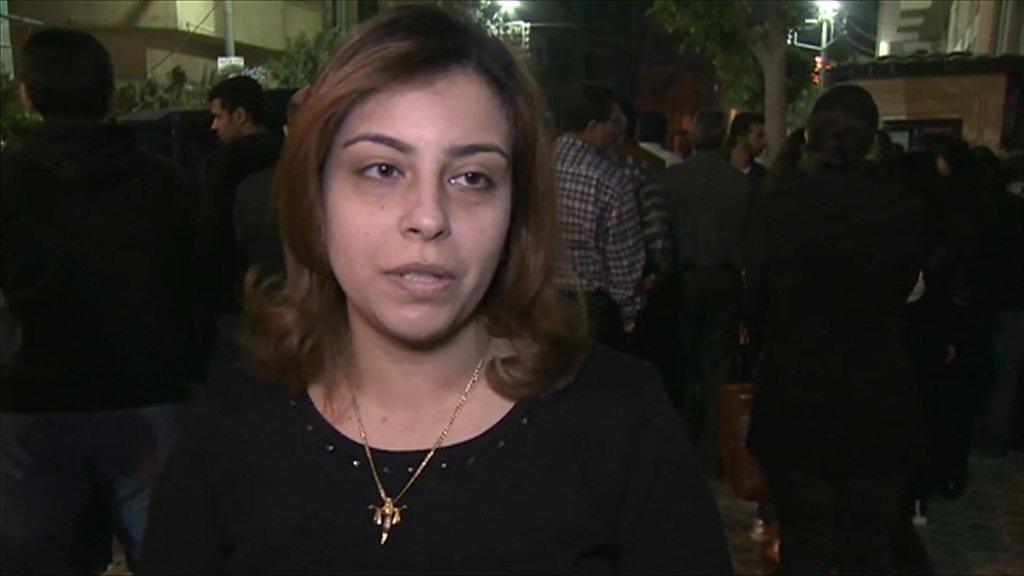
- Published10 April 2017
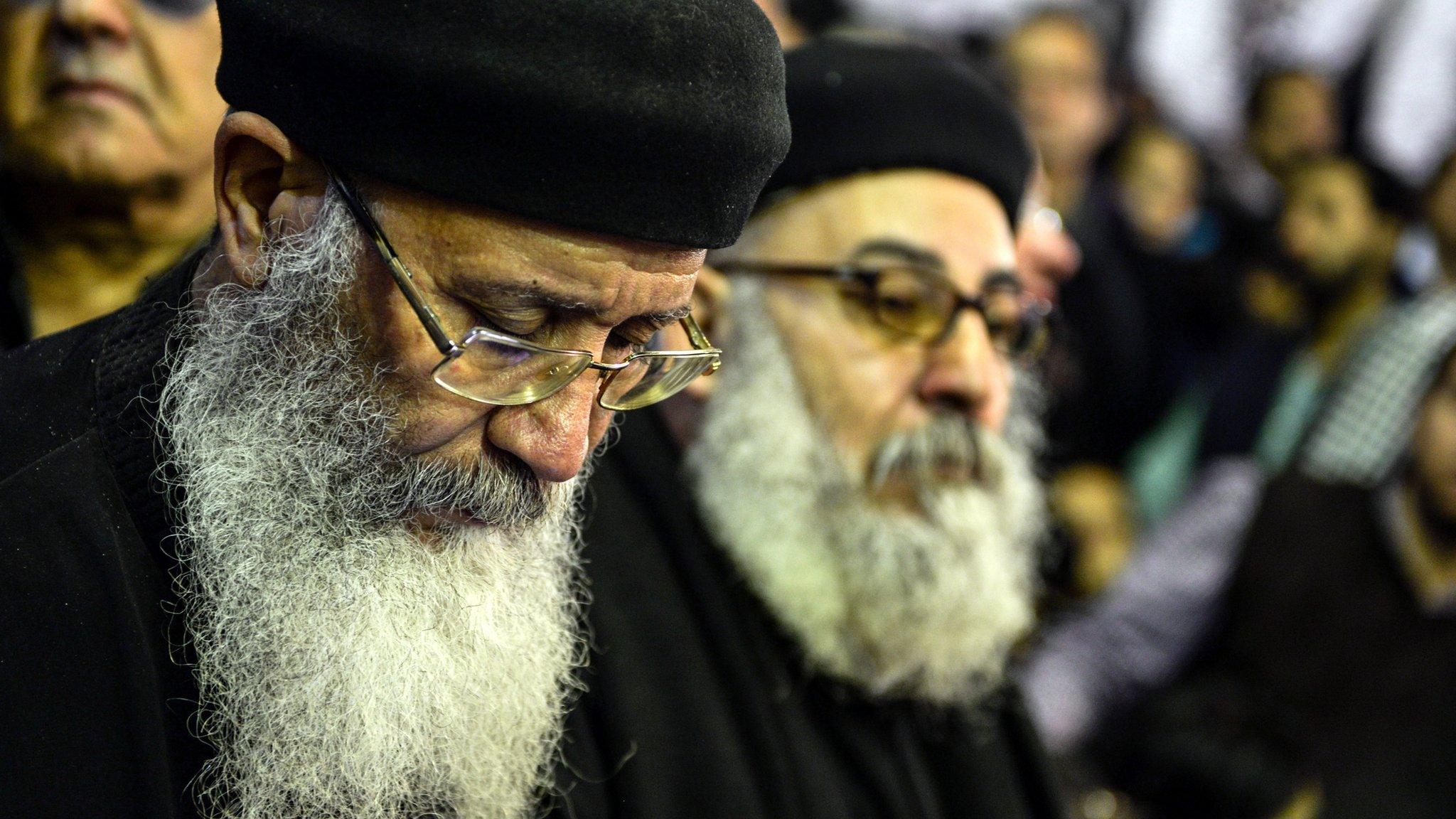
- Published9 April 2017